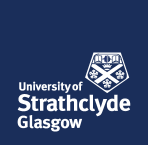Studying Hospitality & Tourism Management opens doors to the largest and fast-growing sector of the economy. In response to employers, studying Hospitality & Tourism Management here at Strathclyde gives you the chance to study this subject in the context of management, strategy, marketing, enterpri

Studying Hospitality & Tourism Management opens doors to the largest and fast-growing sector of the economy.
In response to employers, studying Hospitality & Tourism Management here at Strathclyde gives you the chance to study this subject in the context of management, strategy, marketing, enterprise, economics and ethics.
This degree will prepare you for leadership roles in this dynamic industry which generates £5 billion to the Scottish economy and creates one in 10 jobs. You’ll have the skills to manage operations and business across a range of industries including hospitality, tourism and events.
On graduating, you may be able to apply for membership of professional bodies such as the Institute of Hospitality, the Institute of Travel & Tourism, Tourism Society or the Royal Geographical Society.
What you’ll study
Year 1
Year 2
Year 3
Year 4
Progression requirements
Please note: competitive progression requirements are in place for entry to the Honours year – currently this is a 55% average in the Year 2 and 3 subject modules.
Our work with industry
Throughout the programme, we work closely with a number of industry partners which contribute significantly to our curriculum. Our partners engage with our students on campus through workshops and on-campus recruitment as well as off-campus through regular field visits.
A number of key industry partners also sponsor assessments with generous cash prizes, internship opportunities and newsletter publications. These are in the form of consultancy projects.
While they form part of the formal class completion criteria, they are real projects engaging with contemporary industry or organisational issues detailed by our partners.
Assessment
The majority of classes involve a final unseen exam which is normally at the end of the semester. This is normally supplemented by individual and/or group coursework.
Students normally have one opportunity to be re-assessed for a failed class. Exam resits normally take place during the summer.
A range of assessment techniques are used including:
business reports
case studies
essays
presentations
individual and group projects
learning journals
peer assessments
Our people
Our people are our greatest asset. Learn what they believe to be Strathclyde's strengths and how Strathclyde is making a difference in the wider world.
Award-winning university
Strathclyde is a multi-award-winning university. We’re delighted to be the only University to have won the Times Higher Education University of the Year award twice (2012 and 2019). Over the years we've been recognised across a variety of categories at the Times Higher Education awards. These include the coveted Business School of the Year and Workplace of the Year.
© 2025 coursetakers.com All Rights Reserved. Terms and Conditions of use | Privacy Policy